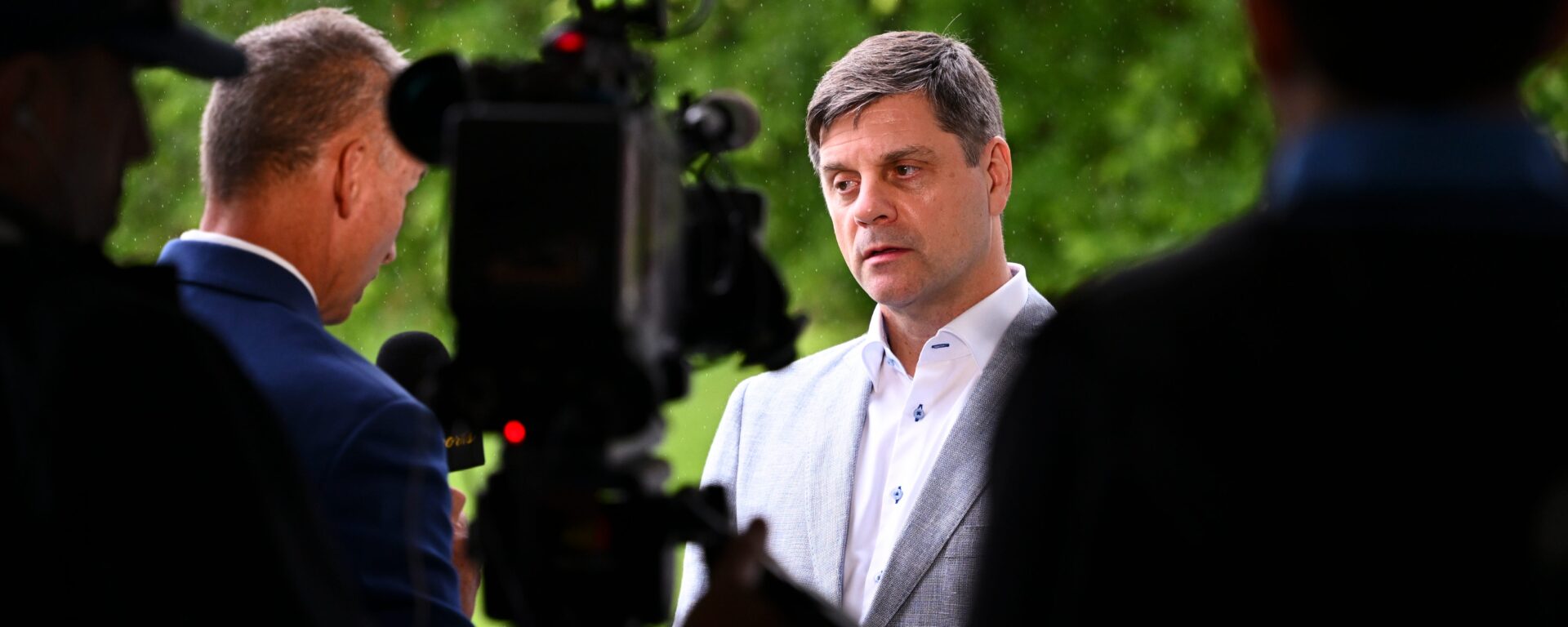Brian Rolapp is so little-known that we can’t hazard a guess whether he’s the type to have brought along a desktop calendar of inspirational quotes for his first day on Monday as CEO of PGA Tour Enterprises. You know, boilerplate bullshit about new jobs being like blank books and that you, Brian, are its author. Or that old banality about doing the hard jobs first and the easy ones will take care of themselves. Chances are that even before he shouldered his backpack and headed off to the GloHo this morning, Rolapp understood that, for now at least, he’s less the author of this book than its editor — tying up loose threads, trimming excess, erasing gaffes — and that his inbox doesn’t actually contain many easy jobs.
So other than booking a lesson package at the TPC Sawgrass Performance Center, what does Rolapp’s priority list look like?
Since he’s not a product of the golf executive ecosystem — nor even really a golfer — he’ll want to start forging relationships. He signaled as much in his first day social media post about being “excited to listen and learn.” (Lesson One: it’s a capital offense to wear apparel not emblazoned with Tour logos, so ditch the plain polo and get measured for your branded gear, though you should demur if Jay Monahan offers a local tailor recommendation).
There are plenty who will want his ear, but Rolapp should be selective in whose ear he wants. Start with meeting Jack Nicklaus to better understand the statutory obligations of his role that aren’t explained by spreadsheets. Move on to stakeholders who need to be heard — sponsors, not least FedEx; tournament organizers; Tour members, current and veteran; broadcast partners; and the most important but least heeded constituency, the fans. These groups aren’t always aligned in what changes they’d like to see, but time spent with each will help Rolapp grasp the fundamental chasm hurting his business. His partners all have the same end user in mind — the golf consumer — but Tour HQ prioritizes a different end user of its services: players. That gap has been woefully exposed in recent years and needs to be bridged.
What undermines the ambitions of most CEOs (other than the kiss cam at a Coldplay concert) is a lack of investment capital to support their vision. Rolapp’s dilemma, though, is a welcome one — how to deploy the $1.5 billion Strategic Sports Group poured into the PGA Tour 18 months ago. Not a dime of that money has been spent, and he will immediately be reviewing whatever proposals exist for its use and deciding on an investment strategy consistent with his goals.
Some of that slush fund ought to be allocated to consolidating relations with the DP World Tour, building gradually toward a more global footprint, as Rolapp did at the NFL. The Tour’s annual cash obligations to the European circuit are unpopular with the SSG investors, but he needs to balance the long-term health of the professional game against short-term balance sheet concerns.
One of the more delicate challenges facing Rolapp is addressing the Tour’s power imbalance. Some (but not all) players on the board think they are executives and some (but not all) investors fancy themselves day-to-day managers. Those two constituencies won’t always agree on what is best for the Tour and neither can be trusted with ultimate power. The whiz kids of Greater Fenway think they wield it because they sign the checks, while players believe they’re in control because they have the board votes. Rolapp needs to reassert executive function at headquarters, an authority that was diminished when Monahan signed the Framework Agreement and thereafter had to constantly placate his members.
Attention will predictably focus, however, on how the new boss navigates the quagmire that bogged down the old boss. Talks with the Public Investment Fund of Saudi Arabia are non-existent, and the deal outlined in the Framework accord is not close to consummation, thanks to Saudi intransigence, rampant ambivalence among Tour players, and the obvious fact that any deal would involve compromising the PGA Tour product simply to save the blushes of LIV’s underwriter, Yasir Al-Rumayyan.
While negotiations are seen as ongoing, there will continue to be a perception that the Tour is missing a critical element that only LIV can provide, which isn’t true. If Rolapp wants to emphasize his organization’s momentum and flip the narrative to innovation and progress, he should cut bait and sail on. A good faith effort has yielded nothing for two years. Stop treating LIV like a serious threat and dismiss it with the derision it deserves.
“Uncertainty’s not good for anybody,” said Roger Goodell, Rolapp’s old boss at the NFL. As inspirational quotes go, it makes up in simplicity what it lacks in sentimentality.
Still, it’s not a bad one to start a work day with.
This article originally appeared on Golfweek: Lynch: PGA Tour boss Brian Rolapp started today, but what comes first?

